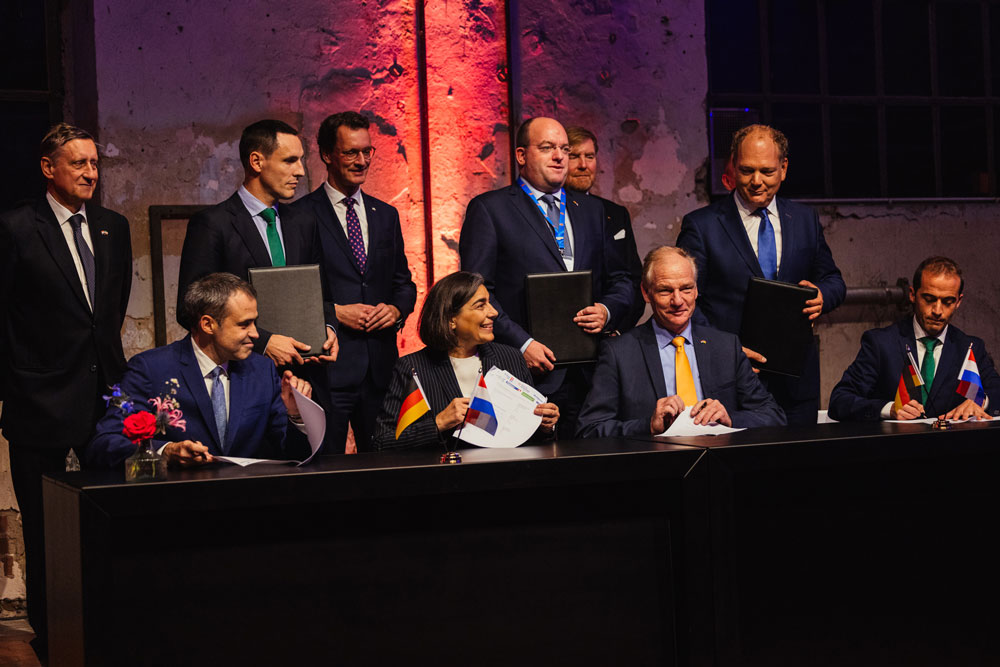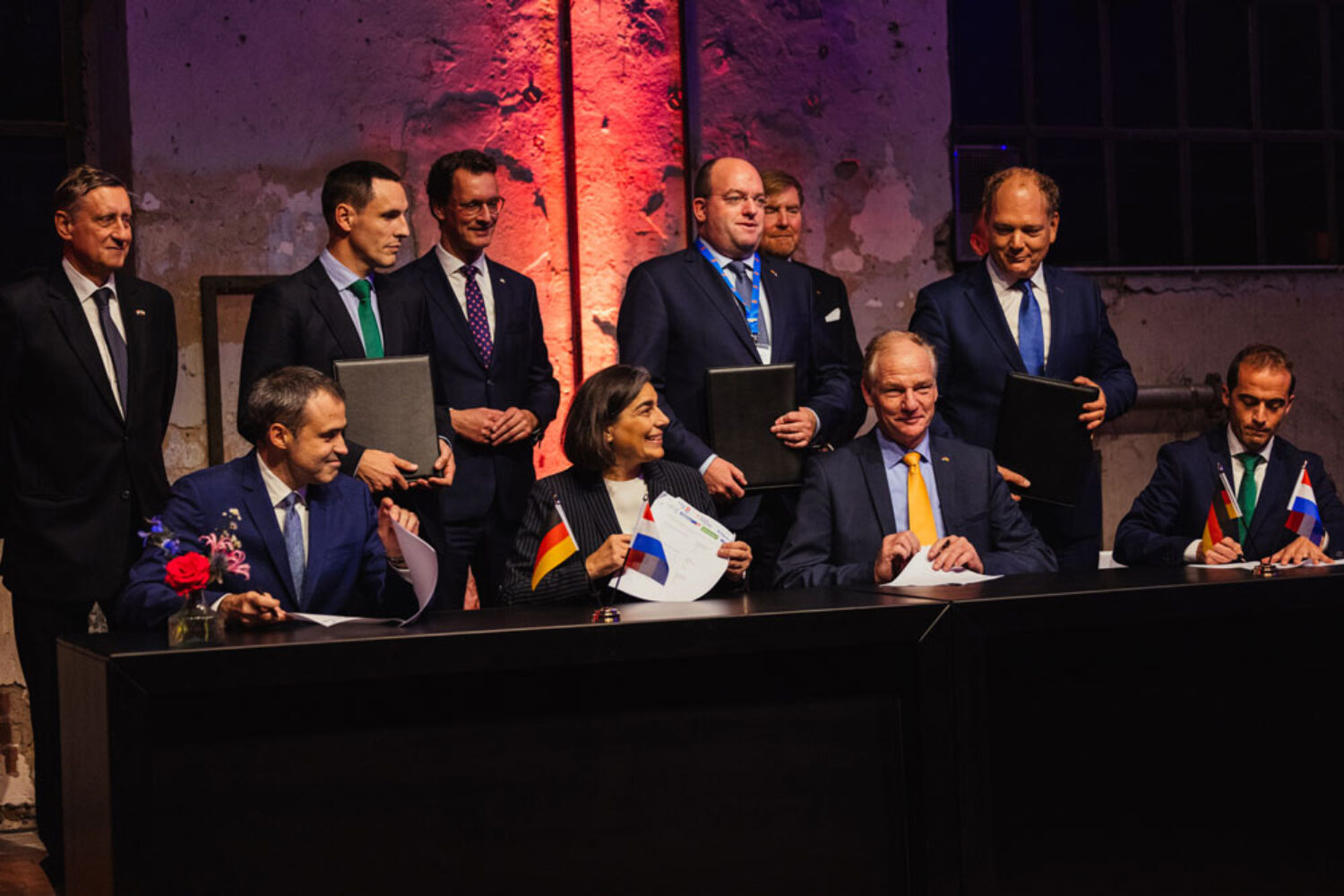The Spanish Basque Country is to supply Europe – in particular the Rhine-Ruhr region – with hydrogen in the future. A letter of intent to this effect has now been signed.
The Port of Bilbao, the Port of Amsterdam and Duisport, together with the Basque government’s energy agency, Petronor, Evos Amsterdam and Zenith Energy Terminals, have signed the memorandum. Together they want to explore the development of an intra-European corridor for renewable hydrogen, connecting Spain, the Netherlands and Germany. The Memorandum of Understanding follows the European Union’s efforts to establish such intra-European corridors, with the governments of Spain, Germany and the Netherlands expected to play a prominent role in their realization, it says.
Hydrogen for Germany
The MoU builds on an agreement concluded earlier this year between Bilbao and Amsterdam. The aim is to create a viable corridor that enables renewable hydrogen produced in the Basque Country and its derivatives to be exported to the port of Amsterdam and purchased locally. With the inclusion of Duisport, this corridor can be expanded, with the port of Amsterdam becoming the gateway to the German market and opening up the possibility of supplying Basque hydrogen to the major industrial customers in the Rhine-Ruhr region.
As part of their collaboration, the parties will focus on the production of renewable hydrogen by Petronor in the Basque Country, the identification of off-take potential and demand centers in Duisburg and the surrounding industrial regions, and the evaluation of transport, storage and distribution methods to find solutions for a secure supply of renewable hydrogen and its derivatives to the respective end users.
Study on the development of a supply chain
The Memorandum of Understanding was signed during the H2 Connecting Event in Duisburg. During this event, Duisport and the Port of Amsterdam also signed a Joint Study Agreement (JSA). They intend to conduct a detailed study on all aspects related to the establishment of a resilient hydrogen supply chain between Amsterdam and the Rhine-Ruhr region.
The King of the Netherlands Willem-Alexander, the State Secretary for Energy at the German Federal Ministry of Economic Affairs and Climate Protection, Philipp Nimmermann, the State Secretary for the Extractive Industries at the Dutch Ministry of Economic Affairs and Climate Change, Hans Vijlbrief, the Minister President of North Rhine-Westphalia, Hendrik Wüst, and the Deputy Minister President and Minister for Economic Affairs, Industry, Climate Protection and Energy of the State of North Rhine-Westphalia, Mona Neubaur, were among those present at the event.














